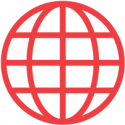An Existential and Universal Crisis!
In order to maintain the planet's habitability and avoid the effects of climate change on the environment, scientists are increasingly unanimous on the importance and urgency of limiting the rise in global temperature to 1.5°C compared to pre-industrial levels of the 19th century. Today, it is already about 1.1°C higher than this baseline. Therefore, and in accordance with the Paris Agreement, it is necessary to reduce emissions by 45% by 2030 and achieve net zero emissions by 2050. However, achieving this goal is becoming increasingly complex due to global economic growth that relies mainly on fossil fuels and a rapidly changing world demography. The pace and scale of urbanization in turn pose additional challenges in terms of housing availability, access to health care and education, infrastructure and transportation, and often become a source of conflict and violence.
A Unanimously Shared Vision
Faced with this very alarming situation, in 2015, the United Nations adopted Agenda 2030, where 193 countries approved 17 Sustainable Development Goals (SDGs) to replace the Millennium Development Goals (MDGs); this came after two years of negotiations involving governments and civil society.
The Sustainable Development Goals provide a roadmap to a better and more sustainable future for all. They are designed to address global challenges, including those related to poverty, inequality, climate change, environmental degradation, prosperity, peace and justice. To track global progress towards achieving the SDGs, the 169 targets ("subgoals") are backed by a list of 244 indicators.
For example, a quarter of the world's children under the age of five have never been registered at birth; they have no proof of legal identity to protect their rights and guarantee universal access to social services.
Therefore, Goal 16, which focuses on justice and peace, has 10 targets, including Target 16.9, which instructs that "by 2030, ensure legal identity for all, including through birth registration".
Where Does Africa Stand Today on the Road to Sustainable Development?
African governments are making considerable efforts to incorporate the SDGs into their national strategies and development plans. The vast majority of countries have identified government units to coordinate implementation and prioritize specific targets and indicators.
However, the 2020 Africa SDG Index and Scorecard Report concludes that:
- Overall, North Africa is the highest-performing region on average, while Central Africa is the lowest-performing. Tunisia has replaced Mauritius as the top performer.
- Serious challenges exist, and the majority of countries are currently performing very poorly. The Leave No One Behind (LNOB) results show that all African countries are currently struggling with a plethora of inequalities.
- The goals facing the greatest challenges are MDG 3 (good health and well-being), MDG 9 (infrastructure) and MDG 16 (peace, justice and strong institutions). The goals where the continent performs best are SDG 13 (climate action) and SDG 12 (responsible consumption and production).
- Across all countries and across all goals, the most common trends observed are stagnation and moderate improvement, which is a positive development from the 2019 analysis, which showed extreme stagnation. The only goal for which the majority of African countries are on track is SDG 13 on climate action.
Despite this assessment, the UN Under-Secretary-General and Executive Secretary of the Economic Commission for Africa (ECA), Vera Songwe, explained during the 8th African Regional Forum for Sustainable Development (ARFSD), held in Kigali from March 3–5, 2022, that "the progress made by Africa in the areas of climate change, the African Continental Free Trade Area (AfCFTA), the management of COVID-19, and education must be applauded. “
Moreover, for the African Union, Agenda 2063 is the concrete manifestation of the pan-African will for unity, self-determination, freedom, progress and collective prosperity pursued within the framework of pan-Africanism and the African renaissance. According to Maged Abdelaziz, under-secretary-general and special adviser on Africa, Agenda 2063 is much more specific than the MDGs in terms of the goals to be achieved.
In education, for example, the Sustainable Development Goals speak of ensuring primary and secondary education for all, while Agenda 2063 aims to increase tertiary education as well.
Water safety is another example. The Sustainable Development Goals call for a substantial increase, while Agenda 2063 precisely defines this increase. The same is true for the other goals. Overall, the two agendas complement each other and are consistent.
The Digital Transformation of Society: An Essential Lever for Sustainable Development
As early as 2018, the UN eGovernment Survey — published three years into the implementation of the 2030 Agenda for Sustainable Development — had highlighted the importance of integrating the goals of resilience, inclusion and sustainability into e-government development.







